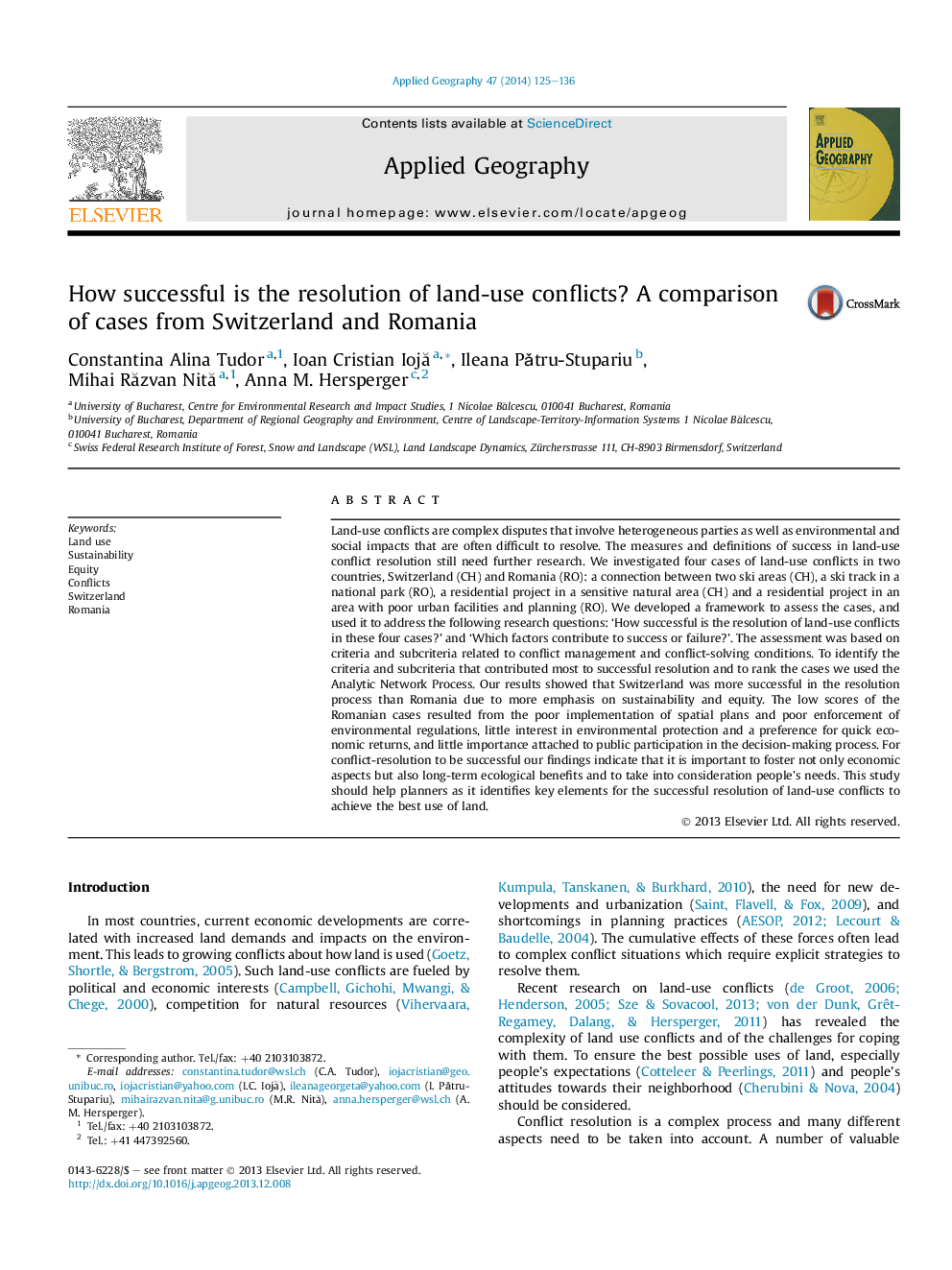| کد مقاله | کد نشریه | سال انتشار | مقاله انگلیسی | نسخه تمام متن |
|---|---|---|---|---|
| 83335 | 158717 | 2014 | 12 صفحه PDF | دانلود رایگان |
• An unstable final decision provides unlikely successful conflict resolution.
• Equity and sustainability are important in resolving positively land-use conflicts.
• Lack of public involvement decreases the success of land-use conflict resolution.
• The environmental impact assessment favors long-term outcomes in conflict resolution.
Land-use conflicts are complex disputes that involve heterogeneous parties as well as environmental and social impacts that are often difficult to resolve. The measures and definitions of success in land-use conflict resolution still need further research. We investigated four cases of land-use conflicts in two countries, Switzerland (CH) and Romania (RO): a connection between two ski areas (CH), a ski track in a national park (RO), a residential project in a sensitive natural area (CH) and a residential project in an area with poor urban facilities and planning (RO). We developed a framework to assess the cases, and used it to address the following research questions: ‘How successful is the resolution of land-use conflicts in these four cases?’ and ‘Which factors contribute to success or failure?’. The assessment was based on criteria and subcriteria related to conflict management and conflict-solving conditions. To identify the criteria and subcriteria that contributed most to successful resolution and to rank the cases we used the Analytic Network Process. Our results showed that Switzerland was more successful in the resolution process than Romania due to more emphasis on sustainability and equity. The low scores of the Romanian cases resulted from the poor implementation of spatial plans and poor enforcement of environmental regulations, little interest in environmental protection and a preference for quick economic returns, and little importance attached to public participation in the decision-making process. For conflict-resolution to be successful our findings indicate that it is important to foster not only economic aspects but also long-term ecological benefits and to take into consideration people's needs. This study should help planners as it identifies key elements for the successful resolution of land-use conflicts to achieve the best use of land.
Journal: Applied Geography - Volume 47, February 2014, Pages 125–136
